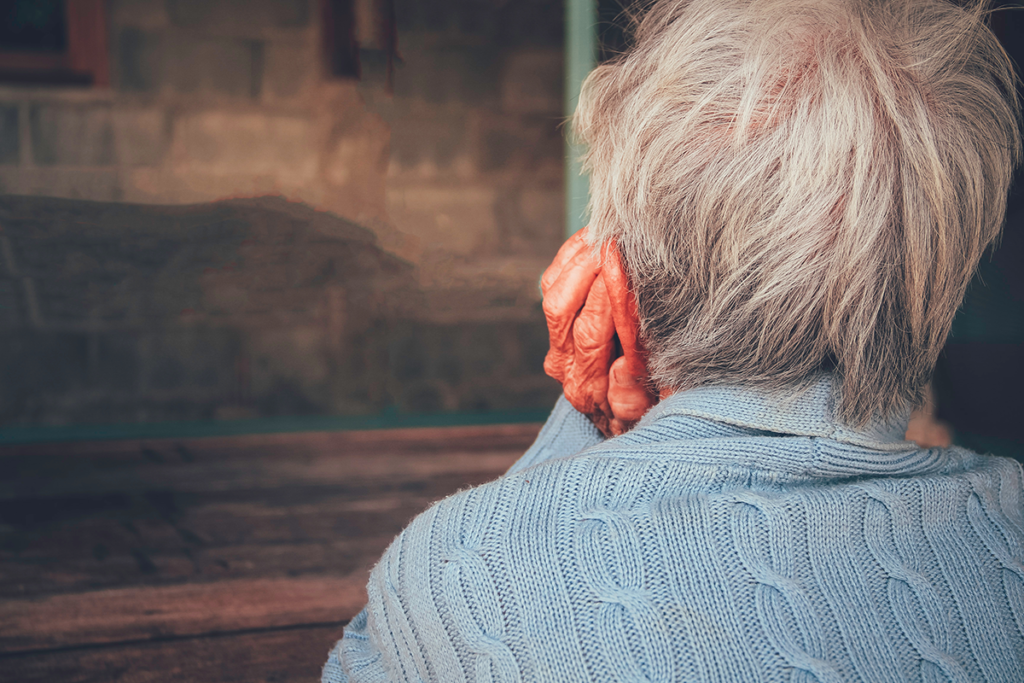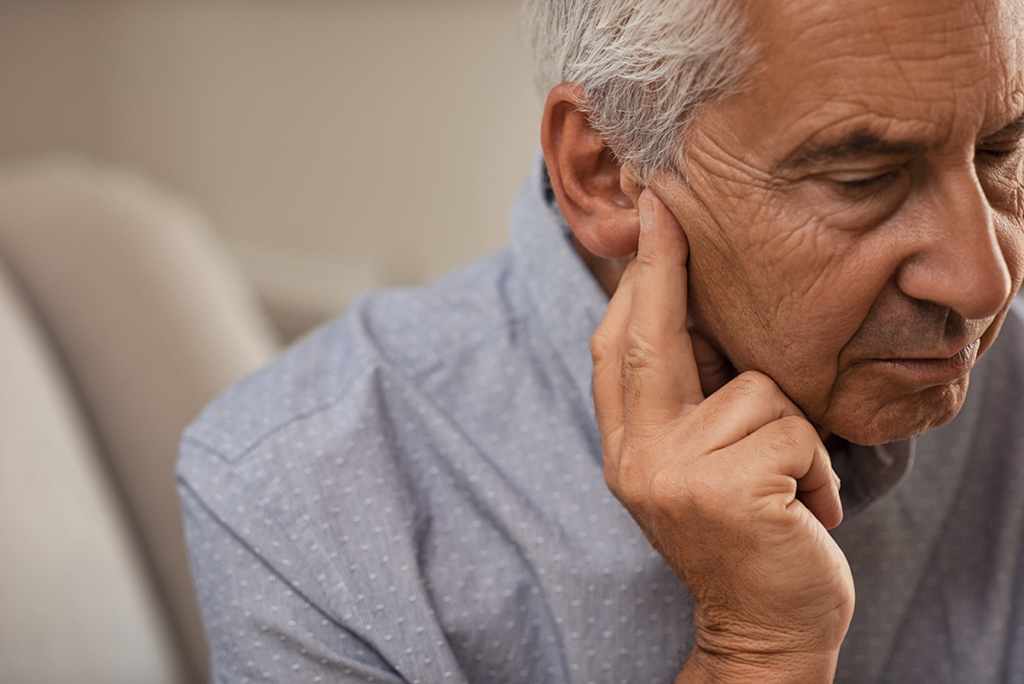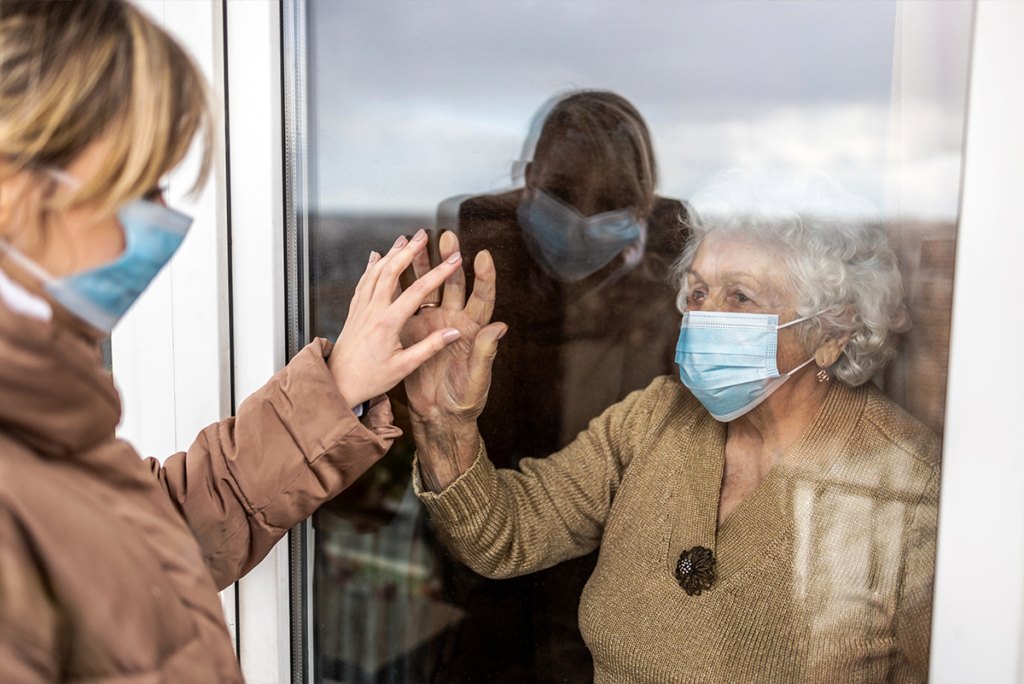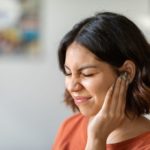It’s no secret that hearing loss has greater impacts on our physical and mental health which extends further than simply struggling to hear.
The negative knock-on effects that suffering from hearing loss can have on an individual can greatly impact their quality of life and overall wellbeing.
For many years, hearing loss has been linked to an increased risk of loneliness and social isolation. More recently, this link has been heightened due to the COVID-19 pandemic, which enforced social isolation, distancing and lockdown restrictions.
So, how and why is hearing loss linked to social isolation? In this article, we aim to explore this theory and some of the issues that can arise for those finding themselves in this position.

Why hearing loss can lead to social isolation
For those suffering from hearing loss, whether mild or severe, socialising and joining in conversations can become a huge challenge.
As humans, the way that we live our lives means that we often find ourselves in social situations surrounded by others. This can be anything from simply going to work and visiting family and friends, to dining out or going to parties.
The problem that occurs here for those who are hard of hearing is that these types of occasions become considerably less enjoyable when you can’t quite participate the way you used to. From one on one conversations to group gatherings and noisy environments, untreated hearing loss can make every single one of these situations more difficult.
Therefore, the link between hearing loss and social isolation makes sense. Many of us like to stay in our comfort zone, and that means avoiding any situation that may make us feel uncomfortable.
Being placed in a situation where communication is a struggle can impose fear, stress, embarrassment and frustration on a hearing loss sufferer. When we begin struggling to communicate and interact with others, being alone can seem like the easiest and most settling option.
Declining invitations and making excuses for not being able to attend social gatherings or even run daily errands can be all too common for those with hearing loss. This avoidance can be considered as a coping mechanism for those suffering, but it may not be one that they are necessarily aware they’re doing.
Out of fear of being placed in an uncomfortable situation, this avoidance may be repeated until it sadly leads them to complete social isolation.
This theory is backed up by a 2020 review study into hearing loss, loneliness and social isolation.
2,495 studies into the association between hearing loss and social isolation/loneliness were analysed in further detail to explore the possible connection.
14 of the case studies were included in the review, which concluded that “hearing loss is associated with loneliness and social isolation have important implications for the cognitive and psychosocial health of older adults.”

Increase in loneliness for hearing loss sufferers in lockdown
Whilst the link between loneliness and hearing loss has been reported for some time, research has shown that this impact was intensified during the COVID-19 pandemic.
This was a challenging time for us all, as we were forced to isolate ourselves from friends and family to keep everyone safe. On top of this, the most vulnerable were advised to shield completely, meaning that any social interaction was completely out of bounds.
For those struggling with hearing loss and potentially already limiting their social interaction, these imposed restrictions are likely to have heightened the impact for them.
When lockdown restrictions were in place, a study was carried out by experts at The University of Manchester, The University of Sheffield and Lancaster University, and supported by NIHR Manchester Biomedical Research Centre (BRC), titled ‘Self-reported hearing difficulties are associated with loneliness, depression and cognitive dysfunction during the COVID-19 pandemic.’
The study surveyed 80 people aged 70+ with mixed hearing abilities during May and June 2020. They found that hearing difficulties were significantly associated with greater levels of loneliness, depression and self-perceived cognitive dysfunction during this time.
They concluded: “The worse the self-reported hearing abilities are, the greater the negative impact of enforced social distancing on depression, loneliness and cognitive function.”
The study was representative of those over 70 who were among the clinically vulnerable and therefore asked to shield. As the evidence suggests, those already struggling with hearing loss were subject to the negative impacts arising from social isolation.
Of course, it is not yet clear what the long-term impacts of this may have on hearing loss sufferers, but the connection between hearing loss and social isolation can be clearly understood from this study.

The solution to easing loneliness caused by hearing loss
Now that we know how hearing loss can increase loneliness and isolation, how can we help to reduce and prevent this from happening?
As with anything, it makes sense to address the root cause first – in this case, treating the hearing loss directly.
Untreated hearing loss can cause symptoms to worsen and result in individuals suffering more than they need to. Hearing aids are the most viable solution for treating hearing loss and alleviating some of the symptoms it can cause.
If you have friends or family suffering from hearing loss and fear that they may be isolating themselves, we would recommend encouraging them to seek professional help. Hearing tests can diagnose the severity of their hearing loss, and help to find a solution to treat it.
Whilst there is no conclusive evidence that hearing aids can prevent social isolation, improving an individual’s ability to hear has direct impacts on all aspects of their quality of life. As a result, the theory is that they may be less likely to avoid social situations if they feel more comfortable.
Alongside this, there are ways that you can help to ease the loneliness of your loved ones and make them feel more comfortable in social situations. Invite them to events and social gatherings, and make a conscious effort to visit or call them regularly.
It’s important to also be considerate of their situation when engaging in conversation. Here are a few tips for communicating with someone hard of hearing:
- Always speak to them face to face
- Don’t shout or speak louder
- Be mindful, and ensure to speak slowly and clearly
- Be patient, and keep rephrasing your message if you need to
The Hearing Specialist are independent audiologists in South London, serving the areas of Wimbledon, Teddington, Croydon, Banstead and Sutton. If you think you or someone you love needs help with their hearing, please get in touch with us today – we can help.




